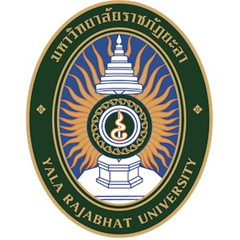Pembinaan Keagamaan Disabilitas Autis Melalui Program Patas Talitis Di Kota Bukittinggi
DOI:
https://doi.org/10.30983/dedikasia.v3i1.5972Keywords:
Pembinaan Keagamaan, Disabilitas Autis, Program Patas TalitisAbstract
References
Abror, K. (2019). Fiqh Ibadah.
Anggranti, W. (2022). Pembinaan Keagamaandalam Peningkatan Kesadaran Beragama Warga Binaan Lapas Perempuandan Anak Kelas II Tenggarong. Jurnal Pengabdian Kepada Masyarakat, 1(1), 14–22.
Asrizal. (2020). Penanganan Anak Autis dalam Interaksi Sosial. Jurnal PKS, 15(1), 1–8.
Bukittinggi, H. K. (2021). Binaan PATAS TALITIS Hantarkan PAIF Kemenag Kota Bukittinggi Juara II Nasional. Https://Bukittinggikota.Kemenag.Go.Id/. https://bukittinggikota.kemenag.go.id/2021/12/02/binaan-patas-talitis-hantarkan-paif-kemenag-kota-bukittinggi-juara-ii-nasional/
Dio Ashar, D. (2019). Disabilitas Berhadapan Dengan Hukum Dalam Lingkup Pengadilan. 1–113.
Gunawan, E. (2017). Perspektif Pemikiran Islam: Perspektif Pemikiran Islam. Kuriositas, 11(2), 105–125.
Habibah, S. (2015). Akhlak Dan Etika Dalam Islam. Jurnal Pesona Dasar, 1(4), 73–87.
Hadiawati, L. (2017). Pembinaan Keagamaan Sebagai Upaya Meningkatkan Kesadaran Siswa Melaksanakan Ibadah Shalat (Penelitian Di kelas X dan XI SMK Plus QurrotaAyun Kecamatan Samarang Kabupaten Garut. " Jurnal Pendidikan UNIGA, 18-25.
Nomor, X. (2021). Vol. XXII Nomor 2, November 2021 | 1. XXII(8), 1–14.
Ridho, M. (2017). Pandangan Islam Tentang Kesejahteraan Sosial Bagi Kelompok Penyandang Disabilitas Miftahur Ridho Dosen Fakultas Ushuluddin, Adab, dan Dakwah IAIN Samarinda. Al-Bayan, 23(1), 105–123.
RIJAL, S. (2019). Pembinaan Keagamaan Peserta Didik Melalui Kegiatan Ekstrakulikuler Di Madrasah Ibtidaiyyah As’Adiyah Banua Baru. Inspiratif Pendidikan, 8(1), 114–125. https://doi.org/10.24252/ip.v8i1.7841
Rusandi, & Muhammad Rusli. (2021). Merancang Penelitian Kualitatif Dasar/Deskriptif dan Studi Kasus. Al-Ubudiyah: Jurnal Pendidikan Dan Studi Islam, 2(1), 48–60. https://doi.org/10.55623/au.v2i1.18
Suryanto. (2016). Dasar-Dasar Normatif Dan Penalaran Filosofis Tentang Hakekat Keimanan. Universum, 10(1), 103–112. https://doi.org/10.30762/universum.v10i1.228
Syobah, S. N. (2018). Pemberdayaan Penyandang Disabilitas Di Provinsi Kalimantan Timur. NUANSA: Jurnal Penelitian Ilmu Sosial Dan Keagamaan Islam, 15(2), 251. https://doi.org/10.19105/nuansa.v15i2.2057
Zaini, M. (2019). The Living Qur’an: Upaya Penanaman Nilai-nilai Al- Qur’an dalam kehidupan santri (Studi Kasus di Yayasan Pondok Pesantren Munirul Arifin Nahdlatul Wathan (YANMU NW) Praya Lombok Tengah NTB). Tesis, 1–231.
Downloads
Published
How to Cite
Issue
Section
Citation Check
License
Copyright (c) 2023 Silfia Hanani , Dian Syafitri

This work is licensed under a Creative Commons Attribution-ShareAlike 4.0 International License.
Authors who publish with this journal agree to the following terms:
- Authors retain copyright and grant the journal right of first publication with the work simultaneously licensed under a Creative Commons Attribution License that allows others to share the work with an acknowledgment of the work's authorship and initial publication in this journal.
- Authors are able to enter into separate, additional contractual arrangements for the non-exclusive distribution of the journal's published version of the work (e.g., post it to an institutional repository or publish it in a book), with an acknowledgment of its initial publication in this journal.
- Authors are permitted and encouraged to post their work online (e.g., in institutional repositories or on their website) prior to and during the submission process, as it can lead to productive exchanges, as well as earlier and greater citation of published work (See The Effect of Open Access).



